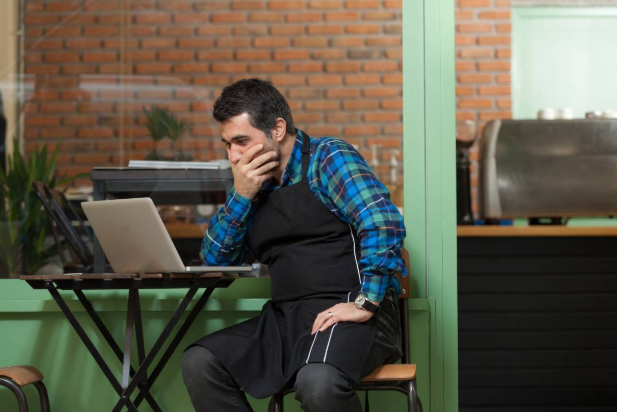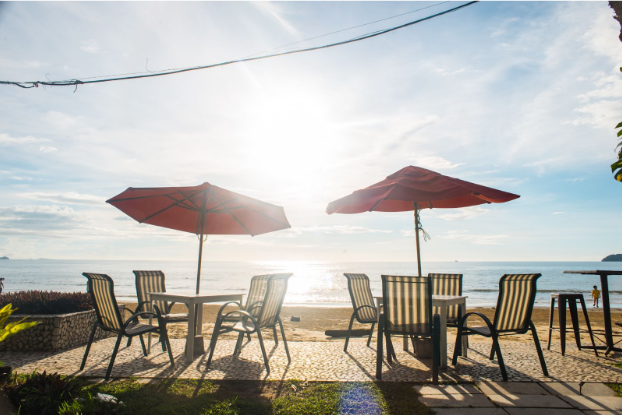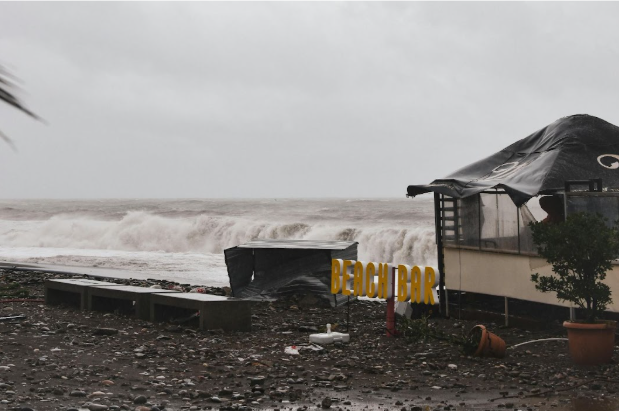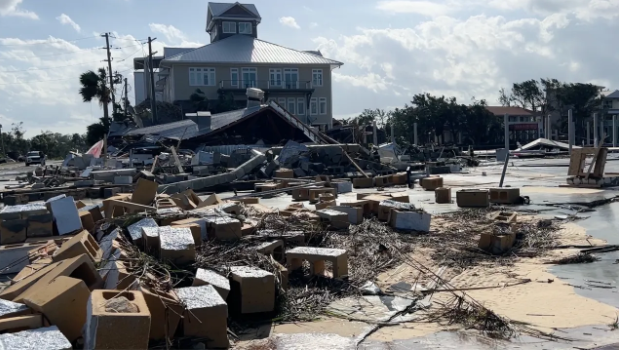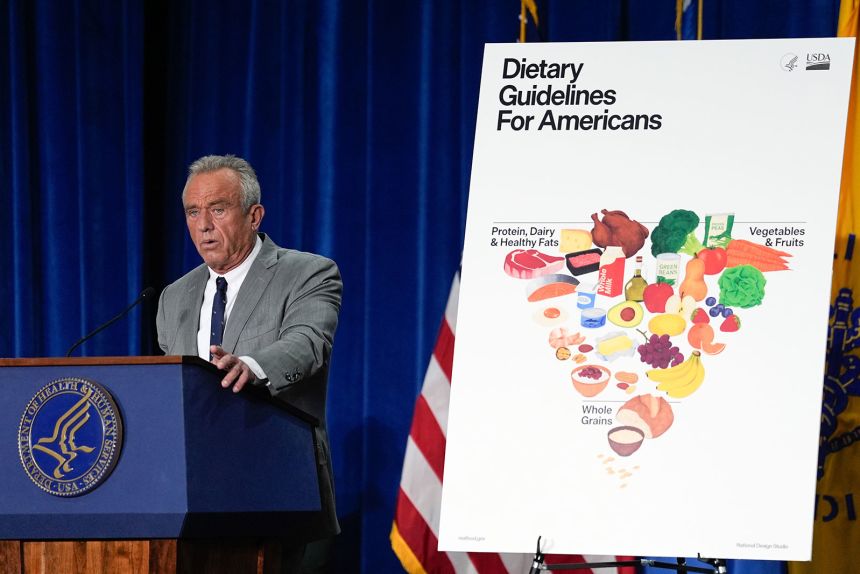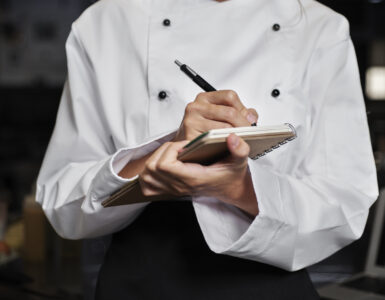Each year, hurricane season serves as a stark reminder of just how vulnerable businesses are to the forces of nature. For restaurants in particular—where operations depend heavily on consistent power, fresh inventory, and a steady flow of customers—a single storm has the potential to halt business for days, if not weeks, resulting in significant revenue loss.
While many restaurant owners take proactive steps to protect their property with standard insurance policies, a large number still fail to account for some of the most critical coverage options. These often-overlooked protections can mean the difference between a temporary setback and permanent closure.
This guide explores the most frequently neglected insurance coverages that restaurant and small business owners should consider, especially during hurricane season. It also highlights the importance of working with the best best restaurant insurance companies to build a plan that fully protects every corner of the business
The Real Risk: Hurricane Season and Restaurant Operations
Hurricane season runs from June through November, and in states like Florida, Texas, and Louisiana, the threat is very real. Strong winds, heavy rainfall, and flooding can cause catastrophic damage in a matter of hours. For restaurant owners, this doesn’t just mean structural repairs—it also means spoiled inventory, business interruption, employee displacement, and more.
Yet, many owners assume that their General Liability policy or even their Business Owners Policy (BOP) is sufficient to cover every possible scenario. The truth is that standard policies often fall short when it comes to hurricane-specific perils.
Common Misconceptions About Restaurant Insurance Coverage
Before exploring the most frequently overlooked insurance policies, it’s important to clarify some of the most common misconceptions that often lead restaurant owners to believe they’re more protected than they truly are:
- “My property insurance covers all hurricane damage.”
Reality: Standard property insurance typically covers physical damage caused by wind or debris, but it often excludes flood-related damage such as storm surge or rising groundwater. To be fully protected from flooding, restaurants usually need to secure a separate flood insurance policy, which is issued through the National Flood Insurance Program (NFIP) or private insurers. - “My restaurant is inland, so I’m not at risk.”
Reality: Hurricanes don’t just affect coastal areas. In fact, some of the most severe damage from past storms has occurred hundreds of miles inland, caused by torrential rain, flash flooding, high winds, and long-term power outages. Being away from the coast doesn’t eliminate risk—it just changes the type of damage most likely to occur. - “Business interruption insurance will take care of everything.”
Reality: Business interruption insurance is crucial, but it has limitations. Many policies only activate if there’s direct physical damage to the property. In some cases, losses due to evacuation orders, utility shutdowns, or road closures may not be covered. Additionally, not all policies reimburse employee wages, spoilage of food inventory, or extended closures beyond a specified timeframe.
Most Overlooked Insurance Options That Could Save Your Business
To truly weather the storm—both literally and financially—restaurant owners need to look beyond the standard property and liability coverage. While these are essential, they often fall short when it comes to the specific challenges posed by hurricane season. Here are some of the most commonly overlooked insurance policies that can make a critical difference in post-disaster recovery.
Overlooked Insurance Options Every Restaurant Needs During Hurricane Season
When hurricane season arrives, many restaurant owners feel confident with their standard property or Business Owners Policy (BOP). However, that confidence can quickly fade when they discover what those policies don’t cover. To truly protect their investment and keep operations running, it’s crucial for restaurant owners to consider these often-overlooked insurance options—especially in storm-prone areas like Florida.
The best restaurant insurance companies, such as CIS (Commercial Insurance Service), offer personalized solutions that include these essential coverages, ensuring restaurants aren’t left exposed when it matters most.
1. Flood Insurance
Why It’s Overlooked: Many restaurant owners mistakenly believe their commercial property policy includes flood protection. In reality, most property insurance policies exclude damage caused by rising water.
Why It Matters: During hurricanes, storm surges, flash floods, and blocked drainage systems can easily inundate a restaurant’s foundation, damaging interiors, furniture, and high-value kitchen equipment. Flood insurance provides coverage for precisely these scenarios, ensuring that recovery doesn’t come entirely out of pocket.
SEO Insight: Protect their restaurant insurance investment by making sure flood damage is part of the coverage strategy.
2. Spoilage Coverage
Why It’s Overlooked: Spoilage coverage is typically offered as an optional add-on and is not automatically included in most Business Owners Policies (BOPs).
Why It Matters: Power outages following a hurricane can last for hours—or even days. Without functioning refrigeration, a restaurant’s food inventory is at serious risk. Spoilage coverage reimburses the business for perishable goods lost due to power failure or equipment breakdown.
Florida Insight: With Florida’s frequent outages during storm season, spoilage losses can easily reach thousands of dollars, making this coverage particularly critical.
3. Utility Services Interruption Coverage
Why It’s Overlooked: Many business owners think standard business interruption insurance covers utility losses. It doesn’t—unless it is specifically added.
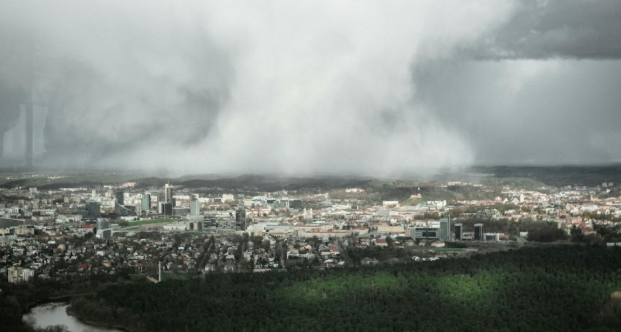
Why It Matters: If water, electricity, or gas is cut off—even if the restaurant suffers no physical damage—it may still be forced to close. Utility services interruption coverage helps replace lost revenue and cover operating expenses during that downtime.
- Equipment Breakdown Insurance
Why It’s Overlooked: Often dismissed as unnecessary or misunderstood as only covering old equipment.
Why It Matters: During hurricanes, surges, moisture, and operational strain can destroy critical systems like walk-in coolers, ovens, or HVAC units. This coverage pays to repair or replace damaged equipment and can even include related business income losses.
With CIS, restaurants get the benefit of working with one of the best restaurant insurance companies, offering complete packages that account for storm-related equipment failure—something standard policies often ignore.
5. Debris Removal and Pollution Clean-Up
Why It’s Overlooked: This coverage is often considered a secondary or “post-disaster” expense, and many business owners underestimate the scope and cost of cleanup.
Why It Matters: After a hurricane, it’s common for restaurants to be surrounded by downed trees, roofing debris, broken signage, or even hazardous materials such as sewage and chemical leaks. Debris removal and pollution clean-up coverage pays for safe and professional cleanup, helping restaurants reopen more quickly and in compliance with local health regulations.
6. Business Interruption with Civil Authority Extension
Why It’s Overlooked: Many believe that if their restaurant isn’t damaged, business interruption coverage won’t apply but that’s not always the case.
Why It Matters: If local or state authorities issue a mandatory evacuation or restrict access to a restaurant due to nearby damage or danger, a civil authority extension provides compensation for lost income even if the building remains untouched..
Access restrictions can last days or weeks. That’s why the best restaurant insurance companies, like CIS, recommend this extension to ensure revenue is protected—regardless of direct physical loss.
7. Employee Wage Reimbursement Coverage
Why It’s Overlooked: Many owners assume they’re not responsible for paying staff during closures or believe other coverages will apply automatically.
Why It Matters: After a disaster, retaining staff is critical to a successful reopening. Employee wage reimbursement coverage helps cover payroll during forced closures, allowing the team to remain financially stable and loyal until the restaurant is ready to reopen.
A Strategic Insurance Partner Makes All the Difference
Choosing the right insurance provider is more than just comparing prices—it’s about finding a partner who understands the complexities of the restaurant industry. Partnering with one of the best restaurant insurance companies can mean the difference between a fast recovery and prolonged business disruption.
CIS (Commercial Insurance Service) stands out as a trusted advisor for restaurant owners, especially those operating in high-risk areas like Florida. With deep expertise in insurance in Florida, CIS understands the seasonal challenges like hurricanes, flooding, and extended outages that local restaurants face.
Their team of specialists works closely with business owners to identify potential gaps in coverage and proactively address them. One of their top recommendations is bundling essential protections into a tailored Business Owners Policy (BOP). This approach helps streamline coverage while managing costs, ensuring that critical protections such as property damage, business interruption, liability, and equipment breakdown are all addressed under one comprehensive policy.
The Cost of Being Unprepared: A Real-World Example
Consider the case of a small seafood restaurant in Tampa that was impacted by Hurricane Ian in 2022. Although the building remained structurally intact, the storm had devastating consequences for the business:
- Power was out for six consecutive days, leaving refrigerators and freezers useless.
- Floodwaters entered the storage room, damaging flooring, walls, and electrical connections.
- The owner lost over $30,000 in spoiled seafood and perishables.
- The restaurant was forced to remain closed for nearly a week, resulting in significant lost revenue.
The worst part? The owner believed he was fully protected under his existing restaurant insurance policy—but he wasn’t.
- ❌ No spoilage coverage: There was no compensation for the food that spoiled during the prolonged power outage.
- ❌ No flood insurance: The water damage to walls, flooring, and electrical systems wasn’t covered.
- ❌ No utility service interruption coverage: He received no reimbursement for the income lost during the forced closure.
This experience could have been drastically different with a comprehensive insurance review from one of the best restaurant insurance companies—like CIS (Commercial Insurance Service). A tailored policy, built with hurricane-related risks in mind, would have included these crucial protections and saved the owner tens of thousands of dollars—not to mention the stress and disruption to the business.
How to Assess Your Restaurant’s Hurricane Readiness
A proactive insurance assessment can identify your weak spots. Here’s a simple checklist to start with:
| Coverage Area | Do You Have It? | Is It Adequate? |
| General Liability Insurance | ✅ / ❌ | ✅ / ❌ |
| Business Owners Policy (BOP) | ✅ / ❌ | ✅ / ❌ |
| Flood Insurance | ✅ / ❌ | ✅ / ❌ |
| Spoilage Coverage | ✅ / ❌ | ✅ / ❌ |
| Equipment Breakdown | ✅ / ❌ | ✅ / ❌ |
| Business Interruption w/ Civil Authority | ✅ / ❌ | ✅ / ❌ |
| Debris Removal/Pollution Cleanup | ✅ / ❌ | ✅ / ❌ |
| Utility Services Interruption | ✅ / ❌ | ✅ / ❌ |
| Employee Wage Reimbursement | ✅ / ❌ | ✅ / ❌ |
If any of these areas raise questions—or if there’s uncertainty about current coverage—it’s time to speak with an insurance expert who understands the unique needs of the restaurant industry.
Why Florida-Based Restaurants Must Take Special Precautions
Insurance in Florida comes with its own set of challenges. Because of the state’s high exposure to hurricanes, many insurance policies include specific exclusions or impose higher deductibles for wind and flood-related damages. Additionally, the cost of premiums in Florida can be significantly higher than in other states, which often tempts restaurant owners to forgo supplemental coverages in an effort to save money.
However, skipping these essential protections can lead to devastating financial losses when a storm hits. This is where the value of working with one of the best restaurant insurance companies—like CIS (Commercial Insurance Service)—becomes clear. CIS helps restaurant owners strike the right balance between affordability and adequate coverage, ensuring they don’t overpay for protection, but also don’t leave their business exposed to the very real risks of hurricane season.
Balancing Protection and Price: Understanding the True Cost of Restaurant Insurance
Many restaurant owners are hesitant to expand their insurance coverage because of budget concerns—and that’s completely understandable. In the food service industry, margins are tight, and every expense must be justified. But what often goes unnoticed is the true cost of being underinsured. When a hurricane or natural disaster hits, the difference between a standard policy and a well-rounded one can mean tens of thousands of dollars in uncovered losses.
Let’s break it down with real numbers:
- ✅ Flood insurance typically adds $500 to $1,200 per year.
Why It’s Worth It: Even minor flooding can lead to $10,000 or more in damage to flooring, walls, kitchen equipment, and electronics. Without flood insurance, these costs come straight out of the owner’s pocket.
- ✅ Spoilage coverage often costs just $100 to $300 annually.
Why It’s Worth It: Florida’s frequent power outages during hurricane season put thousands of dollars in refrigerated and frozen inventory at risk. Spoilage coverage reimburses for these losses, helping businesses reopen quickly with fresh inventory.
- ✅ Equipment breakdown coverage can be affordably bundled into a Business Owners Policy (BOP).
Why It’s Worth It: Kitchen equipment like ovens, walk-in freezers, and HVAC systems are vulnerable to electrical surges and moisture during storms. This coverage helps pay for repairs or replacements and even covers related business income losses.
When you compare these modest annual premiums to the potential cost of a hurricane-related incident which can easily reach $10,000 to $50,000+ in damages, lost income, and recovery time, these additional coverages aren’t just extra expenses. They’re strategic investments in a restaurant’s continuity and resilience.
When stacked against the average cost of hurricane-related incidents—which can easily range from $10,000 to $50,000+ in damages, lost revenue, and recovery expenses—these add-ons are not extra expenses. They’re smart, strategic investments in a restaurant’s future resilience and financial continuity.
Ready to Reassess Your Coverage?
Restaurant and business owners are encouraged to take action before a hurricane is even on the radar. Waiting until a storm approaches can be costly. That’s why proactive preparation is essential.
CIS (Commercial Insurance Services) simplifies the process of evaluating existing policies and offers personalized recommendations based on each restaurant’s unique location, size, and risk profile. With a deep understanding of Florida’s climate-related challenges, CIS stands out among the best restaurant insurance companies helping businesses stay protected during hurricane season.
Hurricane season is inevitable—but being caught off guard doesn’t have to be. Now is the time for restaurant owners to prepare, not after the winds have passed and the cleanup has begun.
By addressing commonly overlooked insurance options, working with a knowledgeable insurance provider, and focusing on comprehensive protection rather than just price, restaurants can stay open, recover faster, and maintain long-term resilience.

